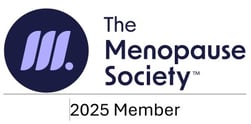Beyond Strength: Understanding and Addressing Age-Related Muscle Loss
As we age, maintaining muscle health becomes vital for staying active, independent, and resilient. This article explores the science behind age-related muscle loss—known as sarcopenia—and highlights proactive, multidisciplinary strategies that can make a difference. Discover how Connected Care NP supports individuals in building strength and confidence through personalized, whole-person care.
7/1/20252 min read


Supporting Muscle Health Through the Aging Process: A Whole-Person Approach
As we age, gradual muscle loss—known as sarcopenia—can impact strength, mobility, and overall health. While often overshadowed by other age-related concerns, preserving muscle function is essential for maintaining independence and quality of life. With life expectancy rising, prioritizing physical capability is becoming a central focus of proactive, whole-person care.
The Silent Shift: What Is Sarcopenia?
Sarcopenia refers to the age-related decline in skeletal muscle mass and strength. It can begin as early as the 40s, with more noticeable effects typically appearing after 60. Research indicates that muscle mass may decrease by 1–2% per year after age 50, increasing the risk of falls, reduced mobility, and metabolic changes.
Although this decline is often seen as a natural part of aging, early interventions—focused on movement, nutrition, and clinical insight—can help preserve muscle strength and overall function.
What Contributes to Muscle Loss?
A variety of factors influence muscle health across the lifespan, including:
Reduced physical activity
Inadequate intake of protein and essential nutrients
Chronic low-grade inflammation
Hormonal changes, such as declining anabolic hormone levels
Metabolic conditions, including insulin resistance
Since these factors frequently overlap, personalized care plans are essential for effective muscle health support.
Multidisciplinary Strategies for Muscle Support
Healthcare providers are broadening their approach, looking beyond just exercise to address muscle preservation more holistically:
Movement and Resistance Training Engaging in regular strength and functional training may help maintain mobility, balance, and physical independence.
Nutritional Support Many older adults do not meet recommended dietary intakes of protein and key micronutrients. Protein, vitamin D, and amino acids are vital for muscle maintenance. Researchers are also examining how peptides and specific micronutrients may support muscle synthesis.
Neuromuscular and Cognitive Considerations Physical coordination and cognitive health are increasingly seen as interconnected. Evaluations of balance and mental function may offer insights into broader muscle and neurological health.
Hormonal and Metabolic Assessment Shifts in hormone levels and metabolic function can contribute to muscle loss. Diagnostic testing may help guide tailored interventions that support long-term musculoskeletal health.
Looking Ahead
There is no universal solution to muscle decline with aging, but early attention and individualized strategies can make a meaningful difference. With collaboration between patients and providers, it's possible to maintain strength, confidence, and mobility well into later life.
At Connected Care NP, we take a personalized, whole-person approach to health that supports muscle function as part of overall vitality. Whether you're navigating changes in physical capability or seeking proactive strategies for healthy aging, our team is here to partner with you—bringing clinical expertise, compassionate care, and evidence-informed insights tailored to your needs.
Contact Us
ccnp@connectedcareNP.com
319-209-4117
Located in Coralville, Iowa
Serving all of Iowa




